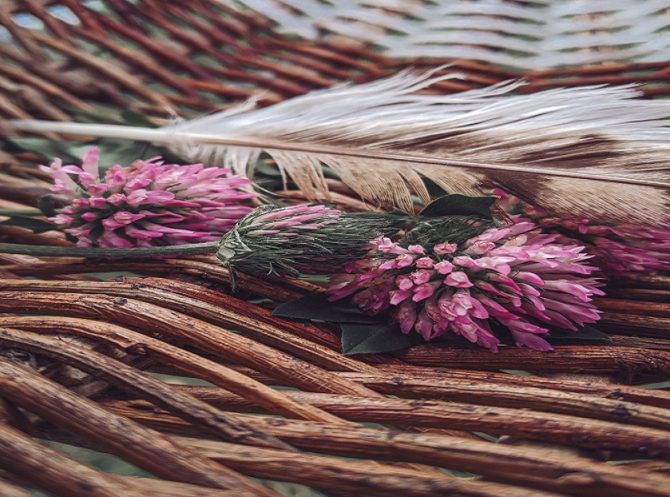Are Wicker Coffins Expensive in the UK?
Date posted December 2022
Wicker coffins offer an environmentally friendly alternative to a traditional wooden coffin. They are biodegradable and feature a softer, basket-weave design that makes them a popular choice for certain traditional funerals. However, they are particularly well known for their use in natural burials.

This post looks at the development of wicker coffins as a sustainable option and answers the main questions you may have, including, “are wicker coffins expensive in the UK?”
The history of wicker coffins
The documented use of wicker coffins stretches back to the Roman empire. The Romans adopted the craft of wicker, after being inspired by Egyptian woven furniture. In the UK, it was during the nineteenth century when funerals, and all elements of the funeral service, took on new meaning. This was partly due to the death in 1861 of Queen Victoria’s husband, Prince Albert, following which she wore black for the remainder of her life.
Families in Victorian times would save up their money so they could hold a special funeral for their loved ones. Back then, wooden or wicker caskets were predominantly used by poorer families, whereas the rich used cast iron, due to the threat of graverobbers. It was also during this time that surgeon and artist Sir Francis Seymour Haden (1818-1910) emerged as a pioneer of environmentally aware burials, promoting the use of biodegradable wicker or papier-mâché coffins.
This was a precursor to the modern natural burial, an option which is discussed in a little more detail below. Indeed, in recent years, coffins and caskets made from sustainable and biodegradable materials have risen in popularity as more people live eco-friendly lives. On their passing, their loved ones wish to honour their environmental beliefs and values.
How are wicker coffins made?
The process of making a quality wicker coffin is complex and requires a high level of skill. Rattan, bamboo, reed, willow, seagrass, and banana leaves are among the plant materials used to make wicker coffins. It is worth noting that the word “wicker” does not refer to a specific material. Instead, it refers to a traditional weaving technique that involves twisting thin sticks of wood together.
The process of making a wicker coffin is essentially the same as for wicker baskets and furniture. The weaving material is first harvested and sorted, before being washed, dried and trimmed. The hand-weaving process then begins. This involves weaving the individual strands around a frame to achieve the right size and shape for the coffin lid and the main section. For the main part of the coffin, horizontal strands are woven tightly around upright pieces, and evenly spaced to ensure a uniform finish. The handles are also woven using the natural plant material.
Wicker coffins are usually lined with an unbleached and biodegradable cotton and are left unfinished, without the use of any chemicals, to ensure they are environmentally friendly and biodegradable. This is especially important if the coffin is to be used as part of a natural funeral.
As a result of the intricate weaving techniques employed, wicker coffins feature a softer look than a traditional wooden coffin. The basket-weave design is usually curved but can also be classically shaped in the style of a wooden coffin. Wicker coffins can be complemented by additional touches, such as a plaque or bow trim detailing, which can personalise the design.
What is the cost of wicker coffins?
Are you wondering, “are wicker coffins more expensive than wooden ones?” The answer is that it depends. In general, the cost of a coffin can vary considerably, from a few hundred to a few thousand pounds. This will depend on the material selected and the level of personalisation required.
When considering the cost of wicker coffins, it is important to think about the quality of the materials used, the level of craftsmanship, and any customisation, such as a plaque, that you would like added. So, rather than placing an exact figure on the cost of wicker coffins, the best advice is to discuss your needs and budget with a professional funeral director who can talk through the available options.
How are wicker coffins used as part of a natural funeral?
A natural funeral is held at a designated woodland burial site or natural burial ground, rather than at a traditional churchyard or cemetery. Instead of gravestones being laid, trees and flowers are planted in memory of the deceased. There are many natural burial sites throughout the country, which are often situated amid acres of tranquil woodland, offering a peaceful final resting place.
A key requirement for conducting a natural burial is that the body is placed into a chemical-free, biodegradable coffin. A wicker coffin fulfils this requirement. As well as wicker coffins, there are cardboard coffin options available that can satisfy the requirements of a natural burial site. Again, these will need to be free from chemicals.
Wooden coffins usually have traces of chemicals, such as formaldehyde, and often have plastic or metal fixtures, which make them unsuitable for natural burials. It is worth noting that a further requirement for a natural burial is that the body is not embalmed.
In addition to natural burials, wicker coffins are suitable for traditional funerals and cremations. They may be preferable in some cases, given their more rustic styling. If you are planning a cremation, you may also wish to complement the wicker coffin with a natural and environmentally-friendly, hand-woven wicker casket or urn to preserve your loved one’s ashes. Again, these are sustainable and feature a cotton lining.
Choose from our selection of sustainable coffins
Bristol funeral directors F Woodruff offer a range of high-quality coffins and caskets made from the finest materials. We feature several natural woven and wicker-style coffins, including options made with willow and bamboo, each of which is handcrafted and biodegradable. These coffins are suitable for natural burials, traditional funerals, and cremations.
We invite you to view our selection and to contact our friendly team if you have any questions about choosing the right coffin, or about any of our professional and compassionate funeral services.


